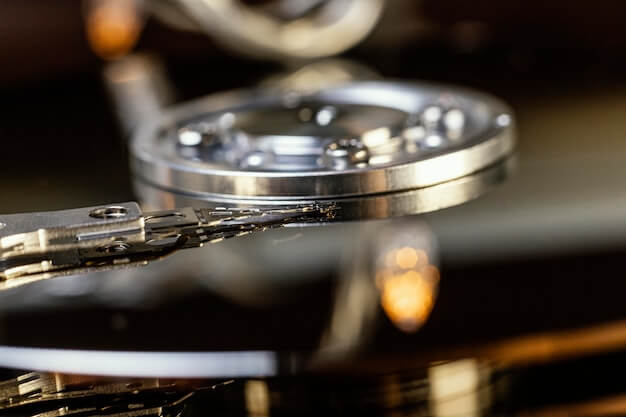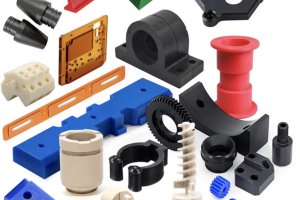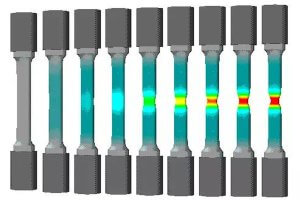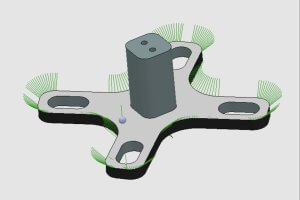Introduction to CNC Machining: Special Focus on Wood and Plastic Materials
CNC machining, or Computer Numerical Control machining, is a manufacturing process wherein pre-programmed computer software controls the movement of factory equipment and tools. It’s vastly beneficial for managing complex three-dimensional cutting processes. While this technique finds applications with an array of materials, our focus category within non-metal CNC machining pertains to wood and plastic materials. In essence, non-metal CNC machining encompasses the use of composite materials that are easy to shape, carve and create highly customizable pieces owing to their natural flexibility.
- Wood CNC Machining: Herein, wood in the raw form is processed into finished products through exact carving, achieving optimum accuracy and precision without compromising on manual craftsmanship.
- Plastic CNC Machining: This involves transforming plastic blocks into designs/objects by contouring them, offering benefits like high-volume part consistency and material variety encompassing acetal, acrylic, PVC and more.
Deep Dive: Wood & Plastic Materials for CNC Machining
Wood and plastic materials are commonly used in CNC machining, offering unique characteristics and applications. Here is a deep dive into these materials:
1. Wood in CNC Machining:
- Wood is a versatile material that offers ease of machining, good strength and hardness, and a wide range of available types.
- It is a popular choice for furniture, home decor, and DIY projects due to its natural aesthetic appeal.
- However, wood machining generates a large amount of dust, which can pose health risks to workers.
2. Plastic in CNC Machining:
- Plastic materials are widely used in CNC machining due to their cheapness, lightweightness, and moldability into complex shapes.
- They offer a wide range of options, including ABS, Delrin, and Nylon 6, each with its own characteristics and cost.
- Plastics also offer chemical resistance, making them suitable for parts intended for harsh chemicals or corrosive environments.
Wood and plastic materials provide unique advantages in CNC machining. To learn more about non-metal CNC machining and gain valuable insights into manufacturing processes, you can refer to our Blog and Knowledge Base. For professional CNC machining services and expert advice on material selection, you can rely on our CNC machining services.
Comparing Wood vs. Plastic in Non-Metal CNC Machining
When it comes to non-metal CNC machining, choosing between wood and plastic materials raises considerations on multiple fronts including cost, durability, and application. The cost of raw material is a pivotal factor — typically, woods like pine are cheaper than acrylic or ABS plastics. However, the price variance broadens when we compare exotic hardwoods with common thermoplastics. Secondly, Durability varies significantly – While plastics excel in their resistance to moisture, some synthetic softwoods can be more durable due to their greater hardness and density.
- Application relevance: In manufacturing contexts such as furniture making or architectural modelling, wood often outperforms plastic given its aesthetic appeal, ease of finishing, and structural integrity. On the contrary, for components required to withstand continuous wear or exposure, high-performance plastics like polycarbonate might be preferred due to their extraordinary toughness.
- Case Studies: A study involving a toy manufacturer revealed that shifting from wooden parts to recyclable HDPE plastic led to 30% reduction in production costs but compromised on the product’s tactile feel loved by customers. Conversely, an electronics casing supplier experienced better customer feedback by switching from plastic to sustainable bamboo materials, despite higher production expenses.
In summation, while both wood and plastics have their unique strengths and weaknesses in non-metal CNC machining, the selection largely depends upon the specific requirements and priorities of the application.
Pros and Cons of Using Wood and Plastic Materials in CNC Machining
The intricate world of non-metal Computer Numerical Control (CNC) machining presents a gamut of materials to select from, with wood and plastic at the forefront. Each material boasts distinct virtues yet collectively come under scrutiny for their limitations as well.
For example,Wood, owing to its natural origin, adds a unique aesthetic appeal and warmth that’s tough for manufactured materials to emulate. It is cost-effective, easy to work with, and ideal for prototypes due to its readily available nature. However, wood can have inconsistent quality depending on growth conditions, is susceptible to warping and cracking, and demands careful storage against rot and pests.
- Strengths: Aesthetic charm, affordable, simple to manipulate, apt for prototyping.
- Weaknesses: Inconsistent quality, prone to deformations, requires protective storage.
In contrast, Plastic has taken center stage in modern manufacturing due to its versatile properties. Plastics offer high strength-to-weight ratios, resistance to various environmental elements, excellent thermal insulation, and allows complicated designs. Yet, they tend to be less eco-friendly given their production process and disposal, and limited heat resistance that restrains their application scope.
- Strengths: High strength-to-weight ratio, good insulator, corrosion resistant, permits intricate designs.
- Weaknesses: Environmentally detrimental, lesser heat endurance.
Therefore, while both wood and plastic offer some compelling advantages in CNC machining, it is essential to consider their respective drawbacks when deciding upon the optimal material choice for specific projects.
Choosing Between Wood and Plastic in CNC Machining
In navigating the world of non-metal Computer Numerical Control (CNC) machining, one significant decision to make is determining whether wood or plastic is more suitable for a specific project. Generally, the choice between these two materials heavily depends on factors such as design complexities, manufacturing costs, product lifespan, end application, and aesthetics.
- Design Complexities: If you are working with intricate designs that require fine detailing, wood becomes an ideal choice due to its capability to tolerate sharp edges without deformation. On the other hand, plastics are better at retaining complex undercuts and cavities.
- Manufacturing Costs: Plastics might cost more initially but have lower processing costs compared to wood since they don’t need additional finishes or treatments to enhance their physical properties.
- Product Lifespan: For projects requiring higher durability and longevity, plastic tends to be the preferable choice given its resistance to environmental influences like moisture and decay.
- End Application: The final use of the machined part largely dictates the material selection. For instance, if thermal insulation is paramount, choosing wood would be advantageous as it has superior insulating properties than most plastics.
- Aesthetics: Wood, however offers aesthetic qualities that can bring warmth and natural elegance to certain products, making it preferable for interior decor items or artisanal crafts.
Future Trends in Non-Metal CNC Machining
The world of non-metal Computer Numerical Control (CNC) machining is expected to see significant advancements particularly pertinent to wood and plastic materials. Advancements in machine precision will potentially allow for more complex shapes and designs, enhancing the capacity to work with wood and plastics. For instance:
- Eco-friendlier options in plastic CNC machining are predicted to rise, responding to increased environmental consciousness.
- Innovations in wood CNC machining would enable greater accuracy minimizing waste and augmenting efficiency.
This trend might influence material choice as businesses weigh the benefits between these two materials moving forward. Some companies may opt for high-precision wooden parts due to their biodegradability while others may favor plastic for its recyclability and versatility. A cleaner production process can also be a determining factor as it is increasingly scrutinized under sustainability metrics. Thus, future trends point towards an integration of technological advancement with sustainable practices.
Other Articles You Might Enjoy
- Using CNC Machining to Fabricate Lightweight Metal and Remove Chrome From Metal( cnc machining services china Dana)
CNC (Computer Numerically Controlled) machining is an essential process in the manufacturing domain. With its precision, adaptability, and extensive applications, many industries rely on it for fabricating highly complex parts…
- Efficient CNC Machining of Lightweight Metal and Chrome Removal( cnc machining services china Atwood)
Computer Numerical Control (CNC) machining is a modern manufacturing process used in various industries, frequently dealing with lightweight metals or needing to remove chrome from metal surfaces. This article will…
- CNC Machining: Tig vs Mig Welding, Sheet Metal Fabrication Techniques( cnc machining services china Virginia)
In the world of custom fabrication and CNC machining, different techniques are used to achieve the desired results and product design. Among these processes, welding is one of the most…









